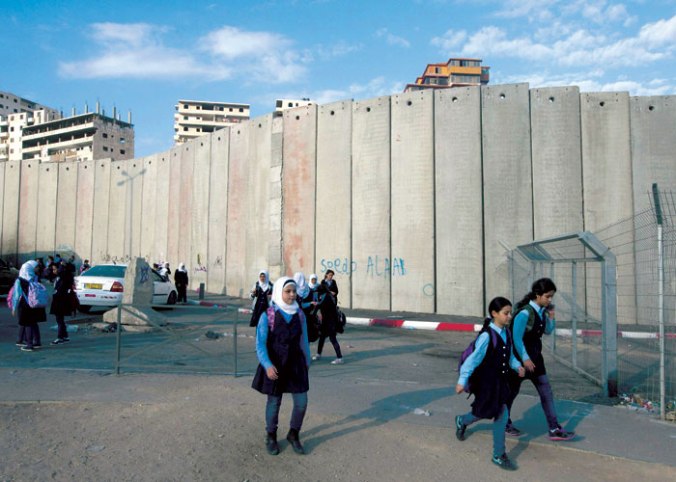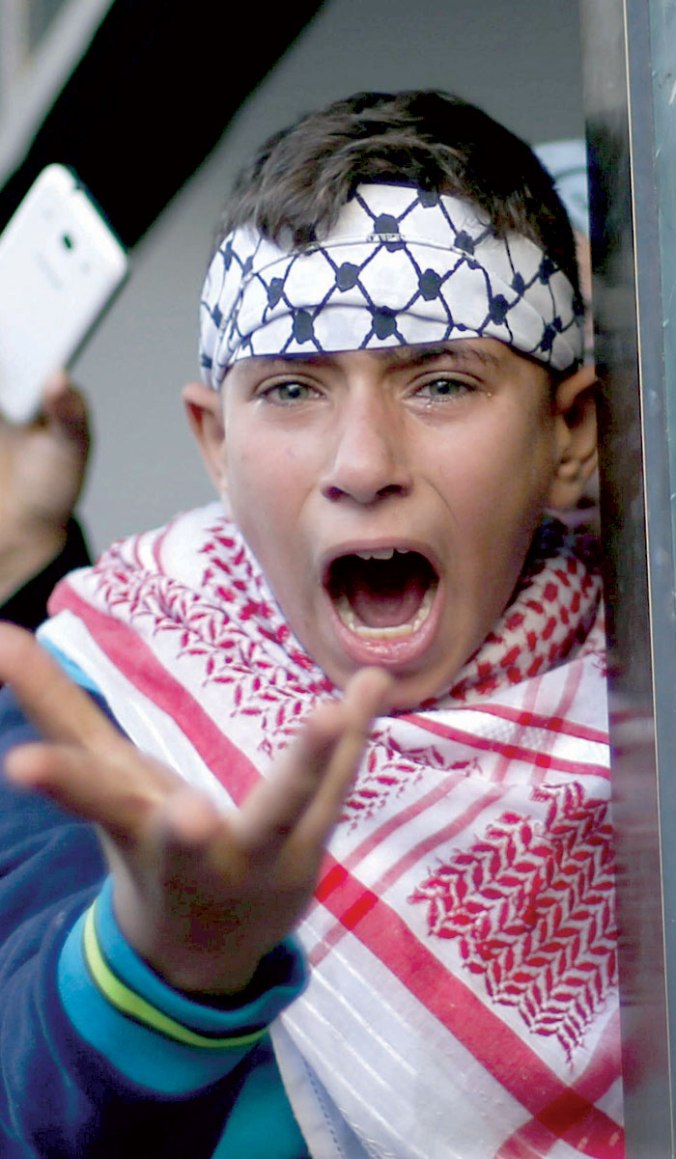
Palestinian school children walk to school in the Ras Khamis neighbourhood of east Jerusalem. TAW
Jerusalem – The Israeli Ministry of Education is offering millions of dollars to underfunded East Jerusalem schools to abandon the Palestinian Authority’s approved curriculum and switch to an Israeli syllabus.
The ministry in January said it would give more than $5 million to schools that teach the Israeli curriculum instead of the Palestinian Authority (PA) teaching plan. The extra funding will not be extended to schools using the PA curriculum, although the money is from a general budget meant to serve all East Jerusalem students regardless of what they study.
The Palestinian Authority described the plan, first reported by the Israeli daily Haaretz, as an outrage. Palestinian parents said it was a violation of students’ human rights and an attempt to create a future Palestinian generation with a “Zionist mind”.
“Israel wants to teach our children that there is no al-Aqsa mosque and that [former Israeli prime minister Ariel] Sharon is a hero. They want our children to recite verses from the Torah and memorise the Israeli national anthem,” said Ziad Shamali, chairman of Jerusalem schools parents’ committee.
Palestinian critics said the plan was part of a long series of illegal and unjust measures that jeopardise the Palestinian presence in Jerusalem.
Traditionally, Israel has been opposed to references in Palestinian textbooks identifying Jews as enemies, with clerics teaching religion classes that the last showdown on Earth would pit Muslims against Jews who would hide or run for their lives but not be spared.
Since Israel seized East Jerusalem in the 1967 war on grounds the city was part of the indivisible and eternal capital of the Jewish state, attempts to rub out the identity and culture of its indigenous Arab population have increased.
Israel tried at the time to force Palestinian schools to teach the Israeli curriculum, which omits Palestinian history, but gave up after families staged months of strikes and protests.
Shamali said that “even now, the curriculum approved by the PA is censored by Israel. We are not allowed to print our books and by the time our children receive them, they are full with blacked out text” by Israeli censors.
Palestinians in the West Bank and East Jerusalem have expressed concern about the amount of money and effort invested by Israel to complete what has been labelled an “Israelisation process”.
Rasim Ebidat, a Jerusalem-based journalist and political analyst, said: “It is evident that the Israeli Ministry of Education led by the extremist Naftali Bennett, head of the Jewish Home far-right party, has put a comprehensive plan to control the educational system in Jerusalem.”
There are about 100,000 Palestinian students studying the Palestinian curriculum in Jerusalem and 1,500 studying the Israeli version, Shamali said.
According to Israeli statistics, eight out of 180 schools teach the Israeli syllabus and several schools have opened some classrooms to teach the Israeli curriculum.
Bennett said the main goal of the plan was to “bolster schools that already offer this curriculum and encourage additional schools to do so”. He said it aimed to “aid the process of Israelisation”.
Israeli commentators said the move allowed students to take the Israeli matriculation exam, easing acceptance into Israeli colleges and universities. Shamali said those are groundless claims, because Israeli universities do not require students to study the Israeli curriculum to enroll at Israeli universities.
Palestinians said the plan was political and ideological rather than to benefit East Jerusalem’s students.
A mother of two children at a school run by the Jerusalem Municipality said the plan took advantage of Jerusalem’s need for extra classrooms because the funding is only for physical improvements, such as computer rooms and sports facilities.
“Israel doesn’t allow us to build new schools and renovate old ones. We need another 2,300 classrooms to accommodate the growing number of students. That is 100 schools,” Shamali said.
Israel gives permits to open private schools willing to teach the Israeli curriculum in exchange for financial support. Many Palestinians send their children to those schools because there is no other option.
Palestinian Education Minister Sabri Saidam said the plan was unfair and, along with several Arab Israeli Knesset members, instructed East Jerusalem schools to be supplied with Palestinian textbooks free of charge.
Hanna Issa, head of the Islamic- Christian committee, said Article 50 in the fourth Geneva Convention says that the occupying power shall make arrangements for the maintenance and education, if possible by persons of the children’s own nationality, language group and religion, which means that Israel must not interfere in the curriculum.
